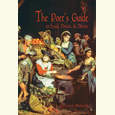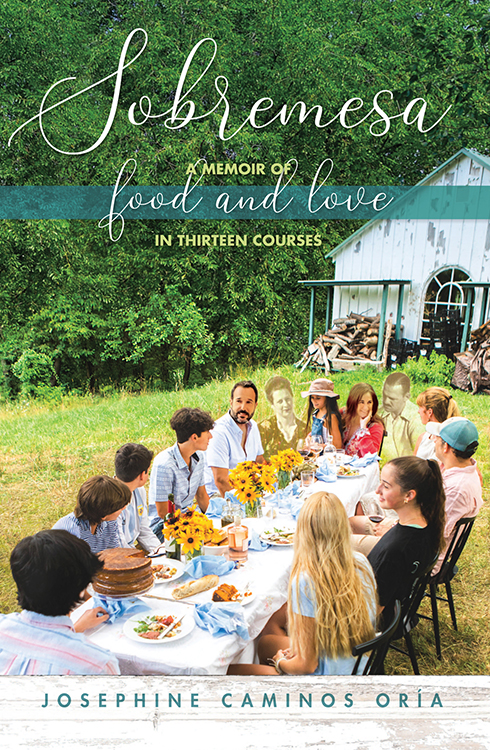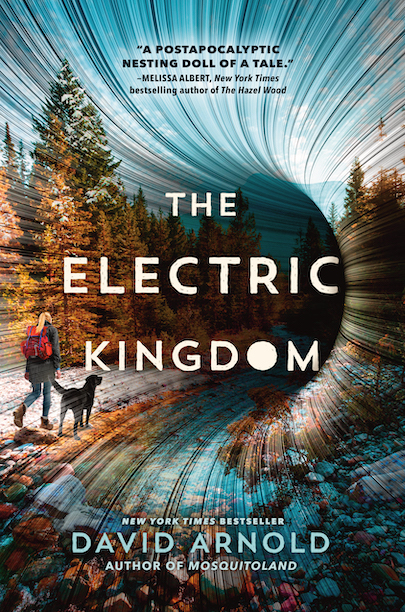Vive la Résistance!
French patriots fight Nazi occupation in Alan Furst’s new spy thriller
Alan Furst has built a career of writing historical spy novels, and A Hero of France will undoubtedly enhance his reputation as one of the best in the genre. In this, his fourteenth novel about the European fight against the Nazis, he has captured the perils faced by those few, brave souls who elected to fight the occupation of France from the inside, where enemies were many and friends could not always be trusted. Set in 1941, A Hero of France portrays the early days of the Resistance, when the primary goal was to aid the escape of Allied air crews being shot down in bombing raids over Germany and France. It was vital work, essential to the ultimate destruction of Nazi Germany. As the novel makes clear, it was also deadly dangerous.
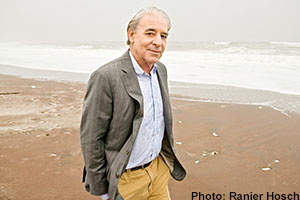 The French Resistance has been romanticized since before the war was over, with books, movies, and TV shows portraying the courageous men and women who refused to submit to Nazi rule. In fact, only about two percent of the French population actively resisted the Germans, with the majority either quietly accepting or even supporting the occupation. Many on both sides were killed, with resistors accounting for tens of thousands of the dead. In setting A Hero of France at the beginning of the war, when the Resistance was mounted by numerous small, disconnected cells, Furst avoids the mass deportations and massacres that marked the later stages of the occupation, though his plot hints at the horrors to come.
The French Resistance has been romanticized since before the war was over, with books, movies, and TV shows portraying the courageous men and women who refused to submit to Nazi rule. In fact, only about two percent of the French population actively resisted the Germans, with the majority either quietly accepting or even supporting the occupation. Many on both sides were killed, with resistors accounting for tens of thousands of the dead. In setting A Hero of France at the beginning of the war, when the Resistance was mounted by numerous small, disconnected cells, Furst avoids the mass deportations and massacres that marked the later stages of the occupation, though his plot hints at the horrors to come.
Furst, whose earlier books include Midnight in Europe and Mission to Paris, is well versed in the spy-versus-spy game of World War II. In A Hero of France his principal protagonist is Mathieu, the nom de guerre of a man who finds himself leading ever-more-elaborate schemes to help British and Polish fliers return to the war. Mathieu is a Parisian, and his activities are centered on the conquered capital, blacked out and quiet as the enemy consolidates its hold on the French. “A sad thing, he thought, a dark and silent city. Silent because the Germans had forbidden the use of cars, busses, and taxis. But in that silence, nightingales could be heard singing in the parks, and in that darkness the streets were lit by silvery moonlight when the clouds parted.” And there is movement in the darkness, as small groups of citizens try to help the Allied cause through many small acts of valor.
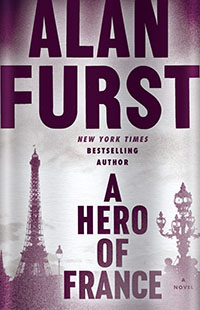 Occupied Paris is a dangerous city for everyone, but for Mathieu and his compatriots it is infinitely more so. Betrayal is common, as the Nazis send their best investigators to disrupt the networks and encourage the defeated French to turn on their countrymen. Being found out is a constant risk, and being captured by the Gestapo is considered a fate worse than death: “Nacht und Nebel, night and fog, Hitler’s very own invention; people disappeared and nobody would ever find out what had become of them,” Furst writes. “They went out to do an errand and never returned. A sharp lesson for family and friends, punished forever by their imaginations.” These terrors prompt Mathieu to conceal his patriotic activities from his closest friends in the hope they will be spared if he is exposed. But before long, the Germans are on his trail, working to roll up his small organization before it can grow and join with other cells.
Occupied Paris is a dangerous city for everyone, but for Mathieu and his compatriots it is infinitely more so. Betrayal is common, as the Nazis send their best investigators to disrupt the networks and encourage the defeated French to turn on their countrymen. Being found out is a constant risk, and being captured by the Gestapo is considered a fate worse than death: “Nacht und Nebel, night and fog, Hitler’s very own invention; people disappeared and nobody would ever find out what had become of them,” Furst writes. “They went out to do an errand and never returned. A sharp lesson for family and friends, punished forever by their imaginations.” These terrors prompt Mathieu to conceal his patriotic activities from his closest friends in the hope they will be spared if he is exposed. But before long, the Germans are on his trail, working to roll up his small organization before it can grow and join with other cells.
Dwight Eisenhower reportedly credited the French Resistance with providing a military impact equivalent to ten to fifteen army divisions during the Normandy campaign of 1944. Whether exaggerated or not, such a sentiment from the Allied commander is acknowledgement that courageous French men and women made a difference, that they truly helped defeat one of the greatest evils in history. In A Hero of France Alan Furst has written an exciting, moving portrait of the early days of the Resistance, days of uncertainty and resolve, when patriotism meant not brashly flying the flag but fighting for it anonymously, in the dark of night.

A Michigan native, Chris Scott is an unrepentant Yankee who arrived in Nashville more than twenty-five years ago and has gradually adapted to Southern ways. He is a geologist by profession and an historian by avocation.
